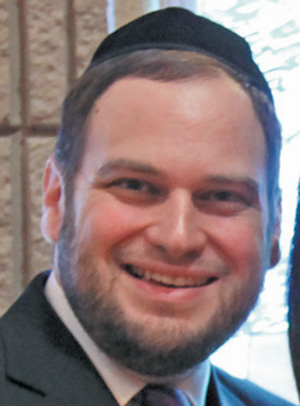
As we journey through life, we tend to be reminded of our own experiences as children when we ourselves are fortunate enough take on the parental or guardian role. Like other pulpit rabbis, I remain in shul after davening on Shabbos in order to greet and speak with congregants. At different stages of their lives, each of my children has typically schlepped on my arm and pulled me in order to get me to come home quickly. Only when they became old enough to walk home themselves did they become resigned to the fact that I stay in shul later than other people.
The reason this tidbit brings a smile to my face is because when I was a child I experienced something very similar, albeit different, with my father, z”l. The unquestionable highlight of my father’s week was remaining in shul after davening to shmooze with just about everyone. I vowed that when I was older I would come home right away after shul was over. Some say that my current reality is Hashem’s sense of humor. With my childhood experience, however, there was another wrinkle to the story. I never knew my paternal grandfather. He passed away when my father was 16 years old. My elderly widowed grandmother lived six blocks away from our home. She would frequently come to our house for Shabbos lunch. Every Friday night, as I tugged at my father’s jacket to schlep him home from shul, he told me that he was going to Grandma’s house to make Kiddush for her. I was so upset at the time—all I wanted to do was go home and start the meal. Here my father would leave us waiting so long while he went to Grandma’s house, who he was going to see Shabbos morning in our home anyway. I just couldn’t understand. Today, as I recall those Friday nights, I do so with a sense of sadness. I regret the fact that I rarely went along with my father to Grandma’s house, and lament the fact that I was too young and immature to appreciate the lesson my father was trying to model to me at the time: the importance of the mitzvah of honoring one’s parents.
After Deena is kidnapped by Shechem, he and his father, Chamor, engage with Yaakov and his family in an attempt to marry Deena and integrate into Yaakov’s family. It is startling that after they finish speaking, the Torah records that they are answered by the sons of Yaakov and not by Yaakov himself. One would think that it was disrespectful of Yaakov’s sons to speak in place of their father, particularly in this very serious matter. The Dubno Maggid explains that while in most cases a child should never speak, nor walk, ahead of his or her parents, there is an exception to that rule. When the area that the parent is walking with their child is dirty or dangerous, it is appropriate for the child to go before the parent in order to clear the way and make a path for the parent to walk honorably. Yaakov’s sons were so horrified by what transpired to Deena that they saw themselves as respecting the honor of their father by responding to Shechem and Chamor in his place. The relationship between parents and children evolves over different stages in life. As the relationship forms, parents protect and care for their children, while later in life children care for and protect their parents. I have been privy to situations where children are terribly distraught that their parents don’t allow themselves to be taken care of. I have also heard from elderly parents who don’t want to bother their children.
As the connection develops throughout life, we must continue to try as children to honor our parents as best as we can. At times, caring for a parent can be very taxing and draining. Some situations may even become troubling to one’s own health. Yet, there is great reward in just trying to do our best. Even when that “best” may not be good enough for others, we have to strive to find peace in our efforts and commitment. As parents, it is important that we allow our children to honor us, protect us and care for us. It’s important for our children to feel that we appreciate their devotion, dedication and love for us. As I walk home with my children from shul on Friday nights, I regularly think back to my childhood. I will forever cherish those Friday nights waiting for my father to come home from Grandma’s house, not because of what I apparently learned then, but because of what I understand now.
By Rabbi Eliezer Zwickler
Rabbi Eliezer Zwickler is rabbi of Congregation AABJ&D in West Orange, NJ, and is a licensed clinical social worker in private practice. Rabbi Zwickler can be reached at ezwickler@gmail.com.










